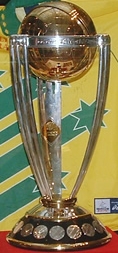This article needs additional citations for verification .(November 2025) |

At the end of each ICC Cricket World Cup final tournament, several awards are presented to the players and teams which have distinguished themselves in various aspects of the game.